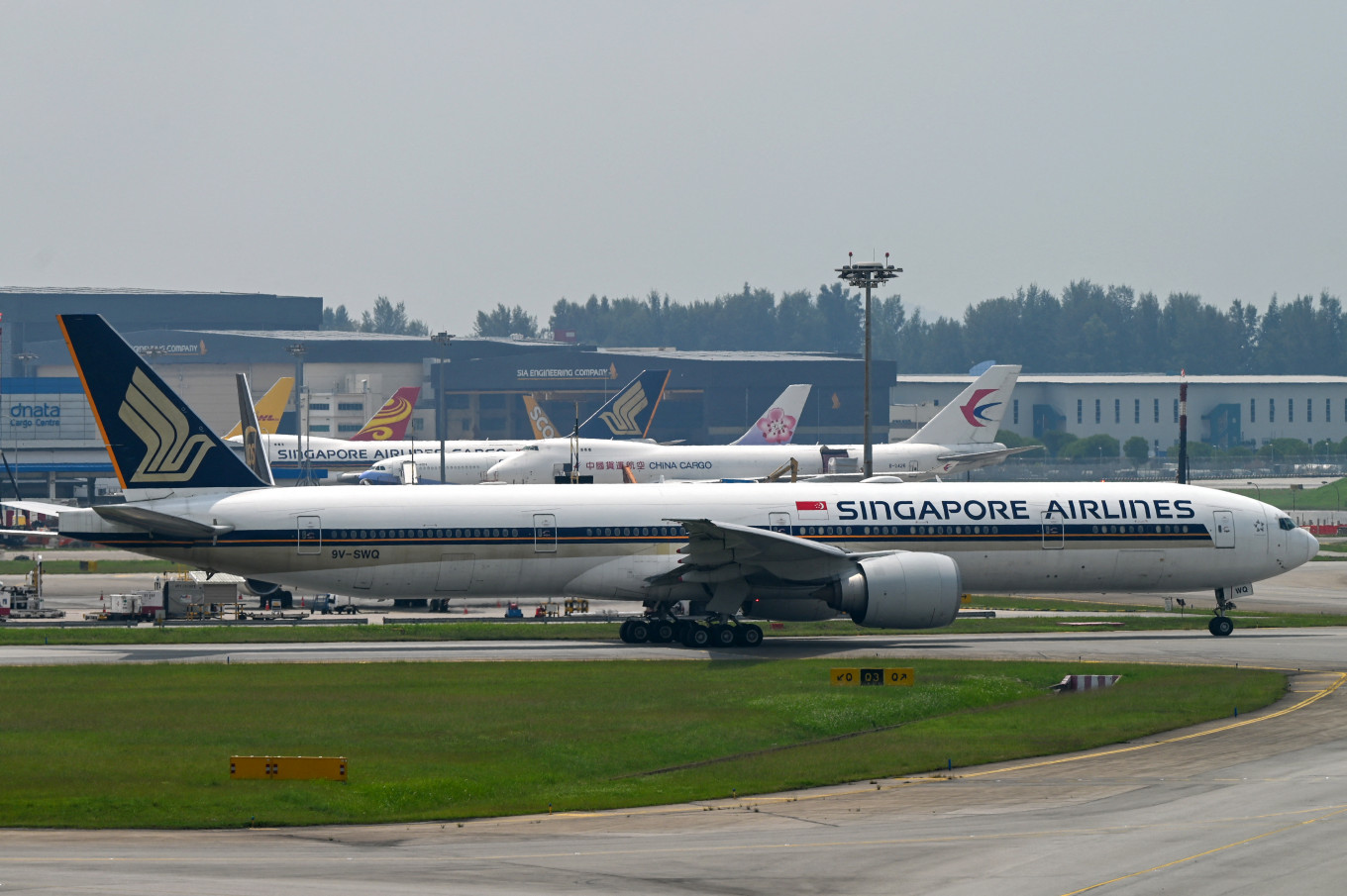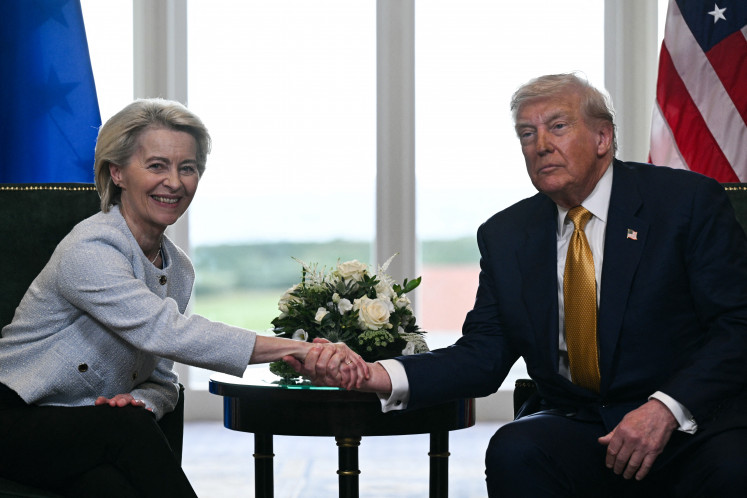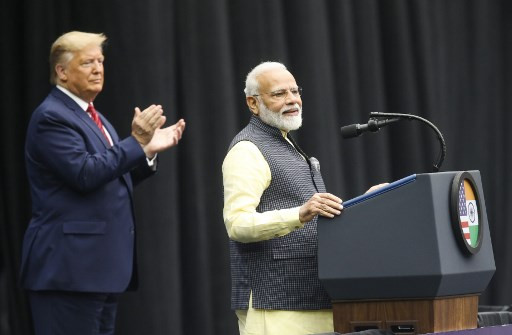Popular Reads
Top Results
Can't find what you're looking for?
View all search resultsPopular Reads
Top Results
Can't find what you're looking for?
View all search resultsSingapore to require departing flights to use sustainable fuel from 2026
Under the plan, announced by Chee Hong Tat at the Changi Aviation Summit on the eve of the Singapore Airshow, the country aims for a 1 percent SAF target from 2026 and plans to raise it to 3-5 percent by 2030, subject to global developments and the wider availability and adoption of SAF.
Change text size
Gift Premium Articles
to Anyone
 More seats: A Singapore Airlines Boeing 777-300ER airplane plies along the taxiway of Singapore Changi Airport in Singapore on May 13, 2022. The airlines is adding an extra flight for the 2023 Idul Fitri travel season to the Soekarno-Hatta International Airport as well as the sixth flight daily to I Gusti Ngurah Rai International Airport. ( AFP/Roslan Rahman)
More seats: A Singapore Airlines Boeing 777-300ER airplane plies along the taxiway of Singapore Changi Airport in Singapore on May 13, 2022. The airlines is adding an extra flight for the 2023 Idul Fitri travel season to the Soekarno-Hatta International Airport as well as the sixth flight daily to I Gusti Ngurah Rai International Airport. ( AFP/Roslan Rahman)
S
ingapore plans to require all flights departing the country to use sustainable aviation fuel (SAF) from 2026, its transport minister said on Monday, as the city-state joins the global aviation industry's efforts to switch to greener fuel.
Under the plan, announced by Chee Hong Tat at the Changi Aviation Summit on the eve of the Singapore Airshow, the country aims for a 1 percent SAF target from 2026 and plans to raise it to 3-5 percent by 2030, subject to global developments and the wider availability and adoption of SAF.
"The use of SAF is a critical pathway for the decarbonisation of aviation and is expected to contribute around 65 percent of the carbon emission reduction needed to achieve net zero by 2050," the Civil Aviation Authority of Singapore (CAAS), which developed the plan in consultation with industry and other stakeholders, said in a statement.
SAF can be made either through a synthetic processes or from biological materials, like used cooking oil or wood chips. SAF currently accounts for 0.2 percent of the jet fuel market.
The aviation industry says this will rise to 65 percent by 2050 as part of a plan to reach "net zero" emissions by then, though that will require an estimated $1.45 trillion to $3.2 trillion of capital spending.
SAF producers complain that they lack certainty about whether fuel they produce will be bought, while airlines say there is not enough supply at the right price. SAF currently costs up to five times more than traditional jet fuel.
CAAS plans to introduce a SAF levy for the purchase of SAF to provide cost certainty to airlines and travellers, it said. The levy will be set at a fixed quantum, based on the SAF target and projected SAF price at that point in time.
It will vary based on factors such as distance travelled and class of travel. For example, the levy to support a 1 percent SAF uplift in 2026 could increase ticket price for an economy class passenger on a direct flight from Singapore to Bangkok, Tokyo and London by an estimated amount of around S$3 ($2.23), S$6 and S$16 respectively.
Passengers in premium classes will pay higher levies, Singapore's aviation regulator added.









